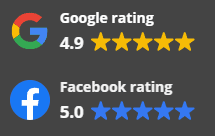
Less than 1/3 of the UK’s top jobs are filled by women. The Fawcett Society, a charity that campaigns for women’s rights has recently published their Sex and Power Index report. The report charts the UK’s progress towards equal representation for women in work – particularly, in top jobs.
The report shows that women are underrepresented in the workplace as they are outnumbered in top-level positions. Women make up more than half the UK population. When we exclude women in top roles, a vast majority of the population is not being represented.
Employers and corporations should be looking at what they can do to increase the number of women in power.
Why it’s important to have more women in top jobs:
Creating new role models:
Having women in positions of power or leadership encourages more women to aim higher and try new things. It can introduce more female role models for children to look up to and help fight gender stereotypes. We are more likely to apply to roles we can see people like us succeeding at.
Women’s priorities on the agenda:
Research has shown that having women in power brings more consideration for women’s priorities. Discussions on women’s health, flexible working styles, finances, etc. are added to the agenda.
Communication improves:
We also see women bringing more cross-team engagement due to their willingness to communicate and collaborate across departments. Women can bring fresh ideas and a new perspective to businesses. They can improve the decision-making process in the workplace and encourage communication and engagement.
What is preventing having more women in top jobs?
A few things may discourage women from applying to top roles.
The male line of succession:
A clear male line of succession prior makes women hesitant to apply for senior positions. As a result, they feel that they are already out of the running since they lack the same ‘look’ as their male successors.
No flexibility:
The Fawcett Society also found that women require more flexibility within their roles. This may be due to wanting to balance childcare and other caring responsibilities. Lack of information surrounding flexibility within the role provides limitations for women wishing to apply. They may be less confident in negotiating for such things at later stages so are sceptical with applying.
Gender Stereotypes:
There is a strong bias against senior roles for women. Most often, employers choose women for more compassionate roles, such as HR. We want to #breakthebias and fight gender stereotypes in the workplace. When promoting from within or hiring new talent, employers should hire based on skillset and merit and not gender.
Bias at interviews:
Designing questions with all candidates in mind can break barriers and remove bias from the role. Questions surrounding salary history contributes to the gender pay gap. Pay gap reporting shows that asking about salary history leads to lower salaries. Women undermine their worth too often and accept lower salaries. Their low salary history will lead to low future offers because of questions like these.
Moving forward:
There is still a way to go before we can achieve equal representation at work. As a society, we should look to increase the number of women in positions of power and remove the barriers in the workplace. Fixing the gender pay gap is reliant on more women in positions of power.
Changes in policies, benefits, interview techniques, development opportunities and standard working styles can make a huge difference in attracting more women to senior roles. Flexible working as a standard eliminates a large limitation and opens up a larger pool of talent.
Employers will have fewer problems filling jobs in the current skills shortage market when they consider adopting more inclusive conditions. Women can bring fresh talent, skills and perspective to the table. Recruitment should be based on skills and merit and not gender stereotypes surrounding the role.
Our dedication:
Here at Allstaff Recruitment, we are dedicated to providing inclusive recruitment strategies that fight biases and bridge the gender gap. We drill down to detail with clients what skills they need for a role, advising against any potential discrimination. Supplying our clients with candidates that possess the key skills to do the role irrespective of gender.
We are proud to work with companies that have equality based policies in place and have women thriving within their senior positions. By working with an agency, employers can avoid unconscious bias. Agencies provide a great second opinion on applications and can openly advise against any matters that appear biased.
To keep up to date with all our recruitment activities please like us on Facebook and follow us on LinkedIn, Twitter and Instagram.
Read Fawcett’s 2022 Sex & Power Index here: www.fawcettsociety.org.uk/sex-power-2022


